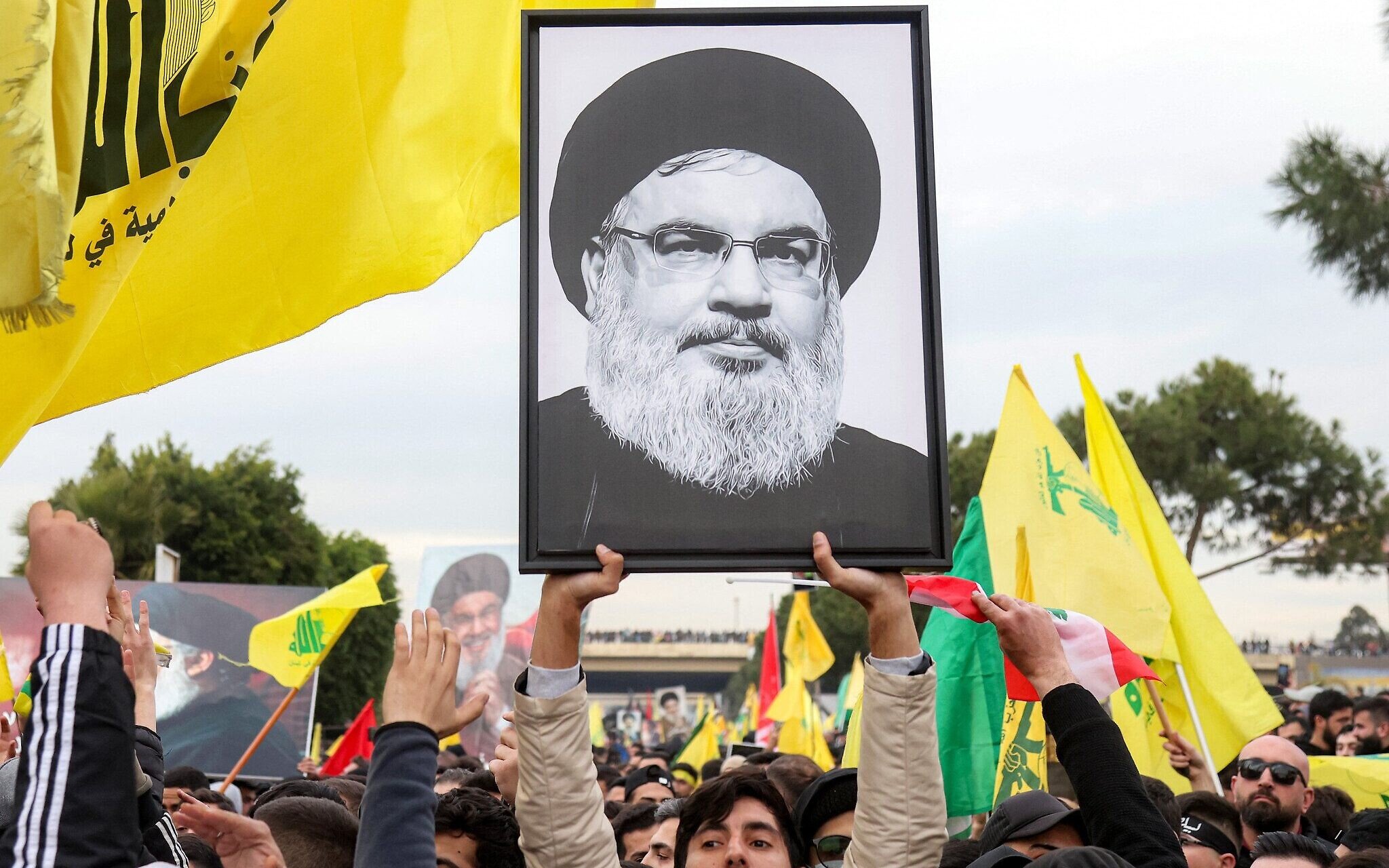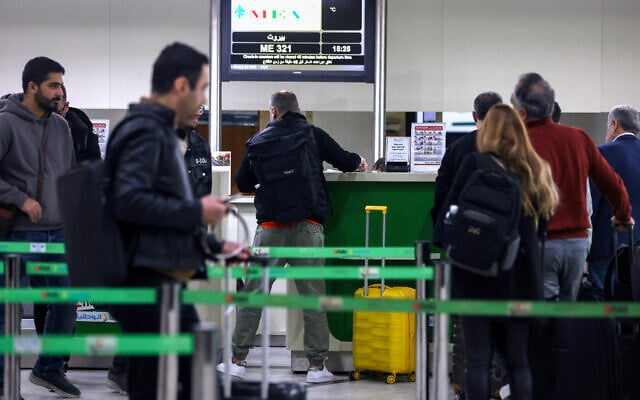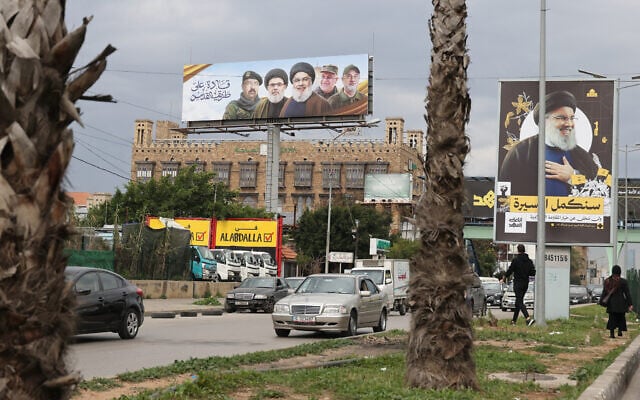



TEHRAN, Iran — Iran’s parliamentary speaker, Mohammad Bagher Ghalibaf, will travel to Lebanon for the funeral of long-time Hezbollah chief Hassan Nasrallah on Sunday, Iranian media reported.
Tens of thousands of people are expected to turn out in Beirut for the commemoration of the Iran-backed terror group’s leader.
An Israeli airstrike killed Nasrallah in September at the start of an all-out war between his group and Israel after roughly a year of lower-level conflict.
The massive strike on Hezbollah’s south Beirut stronghold also killed Abbas Nilforoushan, a senior commander in Iran’s Quds Force — the foreign operations arm of its Islamic Revolutionary Guard Corps.
Ghalibaf “along with several parliamentarians and state officials will leave on Sunday for Lebanon to attend Nasrallah’s funeral,” member of parliament Alireza Salimi told the official IRNA news agency on Saturday.
On Friday evening, the Fars news agency reported that Foreign Minister Abbas Araghchi would also attend the ceremony.
Sunday’s funeral will also be for Hashem Safieddine, a senior Hezbollah figure who had been chosen to succeed Nasrallah before he too was killed in an Israeli strike in October.
The funeral is to begin at 1 p.m. at a sports stadium in Beirut’s southern suburbs, a Hezbollah stronghold. It will include a speech by current Hezbollah chief Naim Qassem and is to be followed by a procession to Nasrallah’s burial site on the outskirts of Beirut.
Saffiedine will be buried in his hometown of Deir Qanun.
Hezbollah has said 79 countries would be involved in the commemoration, whether at an official or “popular” level. Airlines have increased flights to Beirut to deal with demand.
Nasrallah had been temporarily buried elsewhere because of security concerns, Qassem said, and the group had also put off the public funeral for security reasons. Shiite Muslim rites provide for such a temporary burial when circumstances prevent a proper funeral or the deceased cannot be buried where they wished.
Nasrallah led Hezbollah for over three decades. In retaliation for his killing, Iran fired around 200 missiles at Israel in October.
In response, Israel struck several military sites in Iran.
Hezbollah is part of Iran’s “Axis of Resistance,” an alliance of forces united in their opposition to Israel and dedicated to its destruction.
In October 2023, Hezbollah began firing rockets at Israel without provocation, saying it was doing so to express solidarity with fellow axis member Hamas during the Gaza war. The war in Gaza broke out when Hamas terrorists invaded Israel, killing some 1,200 people and kidnapping 251.
Some 60,000 residents were evacuated from northern towns on the Lebanon border shortly after Hamas’s October 7 onslaught, amid fears Hezbollah would carry out a similar attack, and because of the increasing rocket fire by the terror group.
Hezbollah’s attacks on Israel since October 2023 resulted in the deaths of 46 civilians. In addition, 80 IDF soldiers and reservists were killed in cross-border skirmishes, attacks on Israel and in the ensuing ground operation launched in southern Lebanon in late September.
The IDF estimates that some 3,500 Hezbollah operatives have been killed in the conflict. Around 100 members of other terror groups, along with hundreds of civilians, have also been reported killed in Lebanon.
Israeli troops have largely withdrawn from Lebanon since the implementation of the ceasefire, but remain in five strategic positions.


